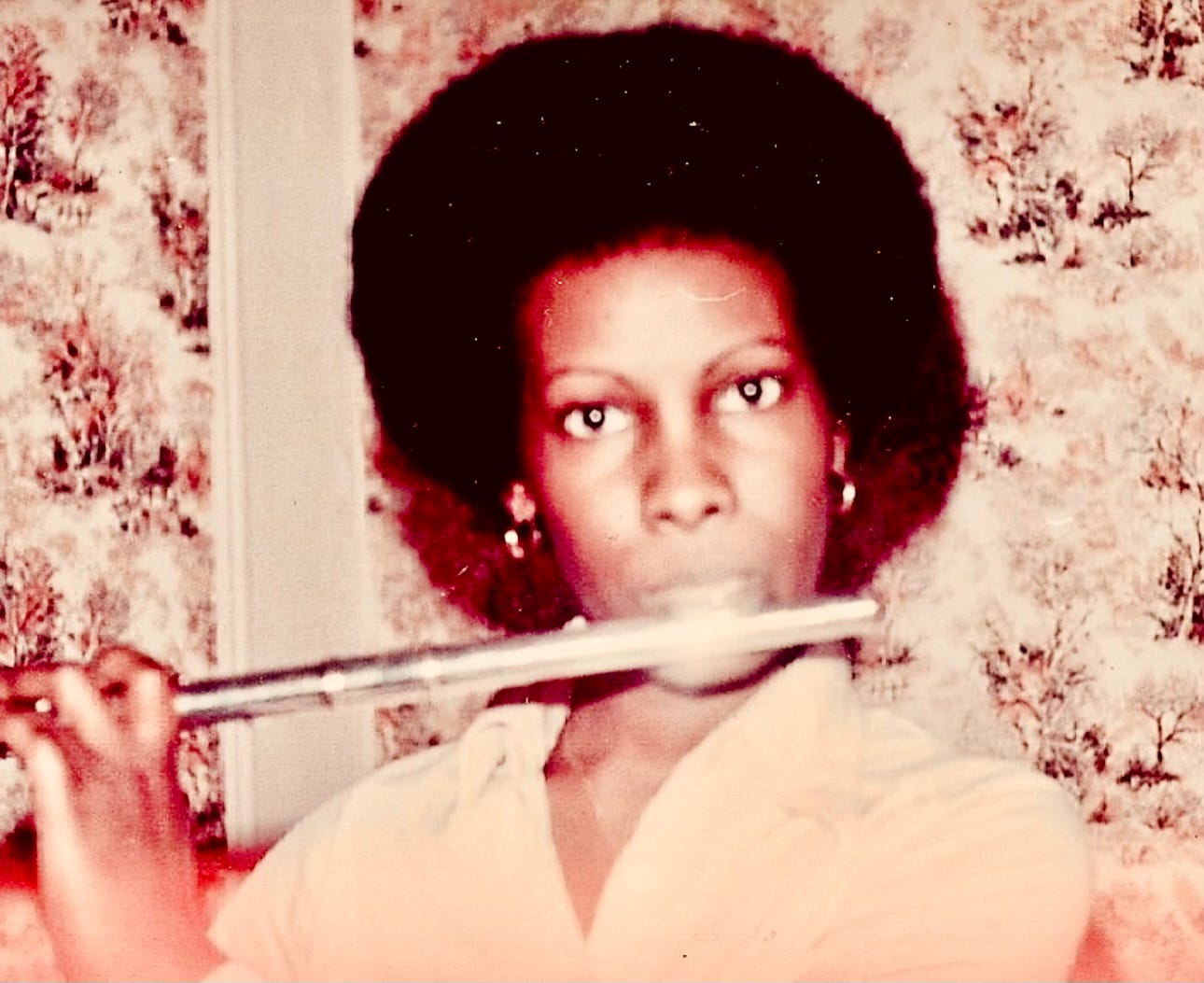This essay is about my uncle, Andrew Bell.
I recently found this New York City Department of Health Licensed Food Vendor permit belonging to him. I knew instantly he’d be the subject of my next newsletter. “Uncle Andrew, your legacy lives on.”
Andrew Willie Bell was my mother’s only brother. He was the best uncle a girl could have. Hard working, generous with his time, encouraging, and always supportive of activities his nieces and nephews were participating in—educational, sports, social, mental and spiritual engagement.
So, who was Uncle Andrew? He was a loving child who was known to be mischievous at times while showering family with hugs and kisses. He liked school but never went beyond the 5th grade. Even then, he could barely read and write his name.
Uncle Andrew was special. He was thought to be a slow learner, but I think he was misdiagnosed. Schools were segregated and teachers didn’t have access to more sophisticated evaluation tools during the 1930s and 1940s to ascertain whether or not he had a developmental reading challenge or some other challenge that interfered with learning. Thus, he repeated the First and Second grades, falling further behind each year.
This failure perplexed his parents and made him angry. It seems educators continued to pass him until 5th grade when his parents were asked to remove him because he was older and larger than the other kids in his class.
I’m sure my grandparents, especially grandma, were opposed but had no choice but to comply. Uncle Andrew continued his education at home with his mother and aunts helping him. In addition to home schooling, he had a paper route, cut neighbors’ grass, and did other odd jobs when available.
Uncle Andrew migrated to New York when his older sister traveled there looking for work and the beginning of a new life. Both were successful in that regard. He got a job working as a dishwasher in a hotel. His sister worked as a housekeeper for a couple in mid-Manhattan. Like many who came North during that time leaving family—mothers, fathers, and even other siblings—behind, Uncle Andrew’s sister promised their mother that she would watch out for him.
His sister didn’t have to worry because Uncle Andrew was determined to make it on his own terms. After securing employment, he moved into a tiny apartment of his own, visiting his sister on weekends, mostly Sunday to share a home cooked, down home Sunday meal. How they must have enjoyed those reunions every week though his sister worried during the week if he was alright. After all, she’d been charged with the task of making sure her brother was alright.
His big sister became my mother several years later. They were not alone when they came. Their aunt and her husband accompanied them. They, too, were in search of jobs and a better way of life.
Migration worked out for everyone. They got jobs paying more than they would have received in Augusta, GA. My mother and her aunt and aunt’s husband shared an apartment together. My uncle had his own place.
Uncle Andrew was also an accomplished, self taught musician; a wonderful saxophonist.
He and three other male friends whom he met in NYC after moving from GA formed a quartet—saxophone, base player, . They played weddings and other small events as a side gig. I don’t have photos of them, but do have a photo of my uncle’s beloved saxophone.
Uncle Andrew loved his horn and family. The family was keen on music. Grandmother played the violin; Aunt Tina could play the organ but seldom did; Grandaunt Mary Frances played the piano as a child; my older sister and I studied the piano; and I played Eb Horn in the junior high school band. He bought my brother, Daw-ud, a trumpet and me a flute. Daw-ud lost interest almost as soon as he got it. I still have my Armstrong flute, though due to a vocal issue I can no longer play.
I’ve had the flute for sixty-two years and it still sounds good. I’m not suppose to play because of a vocal issue, but sometimes I take it out to see if I still remember how to play. My uncle encouraged and motivated me. That encouragement led me to join the band in junior high school where I played the Eb Horn.
Although Uncle Andrew continued to struggle with reading during his lifetime, he became an independent businessman and enjoyed playing his saxophone until health forced him to stop working and playing. I’ll always be grateful for his love, support, and encouragement to pursue my love of music and history.










Beautiful photos. I loved reading about your uncle.
What a beautiful memory interwoven with the realities of a tortured world he was born into. His love and talent shine right through.